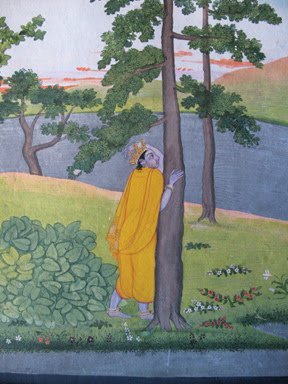Trees, People and Art
6th January 2013
We can’t see wind, only the things it moves. Likewise, we can’t hear wind unless it’s flowing past something that makes it vibrate; this causes it to adopt various sonic guises depending on what it interacts with. Trees provide some of the most common and admired ways for wind to make itself heard. This sound has been termed psithurism (sith-err-iz-um). The naturalist author and founding member of the RSPB, W.H. Hudson, suggests in Birds and Man (1901), that psithurism is salubrious. He describes […]
15th June 2012
Hatshepsut is generally regarded by historians as one of the most successful pharaohs of Egypt. She lived in the 15th century B.C. and had a long and successful reign, marked by building projects and trading expeditions unrivalled by any other culture for a thousand years. As well as being the first great woman in recorded history, inaugurating a long peaceful era and bringing great wealth to Egypt, she can also fairly lay claim to being the world’s first arboriculturist. Historians agree […]
24th April 2012
I was recently travelling overseas and found myself reading George Orwell’s classic 1984 (having read all I’d brought with me in the first week, it was the only English language book available!). What struck me throughout the novel (other than how many of the terms have become contemporary since publication) was how utterly grim and ruined the urban landscape was and how this added to the atmosphere of hopelessness. Yet I was struck by this particular passage, that relates […]
26th January 2012
Edwin Way Teale was a natural history writer who wrote and edited over 30 books, winning both the Pulitzer Prize and the John Burroughs Medal for distinguished natural history writing. He is less well known than many other writers of the time, but was a mentor to today’s modern nature writers. Here he describes how an interest in nature interconnects with so many similar yet distinct areas of study. This struck a particular cord with me, as the practice of arboricultural […]
8th January 2012
New research is looking at the impact of birdsong on our sense of wellbeing. The study will examine the psychological impact of being exposed to birdsong, including whether it helps us relax, can assist our ability to complete tasks and even think creatively. This research interests me as my own study has shown that urban trees may result in higher levels of mental wellbeing, yet how this happens is unclear, could it be that birdsong, closely associated with trees, […]
15th December 2011
Trees form a key aspect to several Asian religions. The banyan tree is best known as sacred to Buddhists as after the Buddha attained enlightenment sitting under one. However trees are also important for Hindus and they feature prominently in the Bhagavad Gita, where Krishna uses tree to explain the meaning of life. “Have a look at these great blessed trees, who live only for the welfare of others, themselves facing the severity of stormy winds, heavy showers, heat and […]
7th December 2011
I’m sure anyone whose been involved in practical tree surgery will agree, this poem brilliantly captures the process and impacts of ‘section felling’ a mature tree. In the past I have taken my fare share of trees down by section felling (the photo is probably one of my last big ‘uns); its a task that can require considerable skill and nerve and one that as a young tree surgeon I would take pride in, focusing on the technical side of the job at hand without too much […]
25th November 2011
Felling trees near where people live is always an emotive issue. As chartered arboricultural consultants we have to factor this into our decision making when managing urban trees. This poem was first printed over 100 years ago, yet considering its age I was amazed at how contemporary the issues raised are (Sheffield Street Tree Felling?!). The language may have aged a little, but this could have been sent by a disgruntled local to the tree officer in the Oxford city […]



